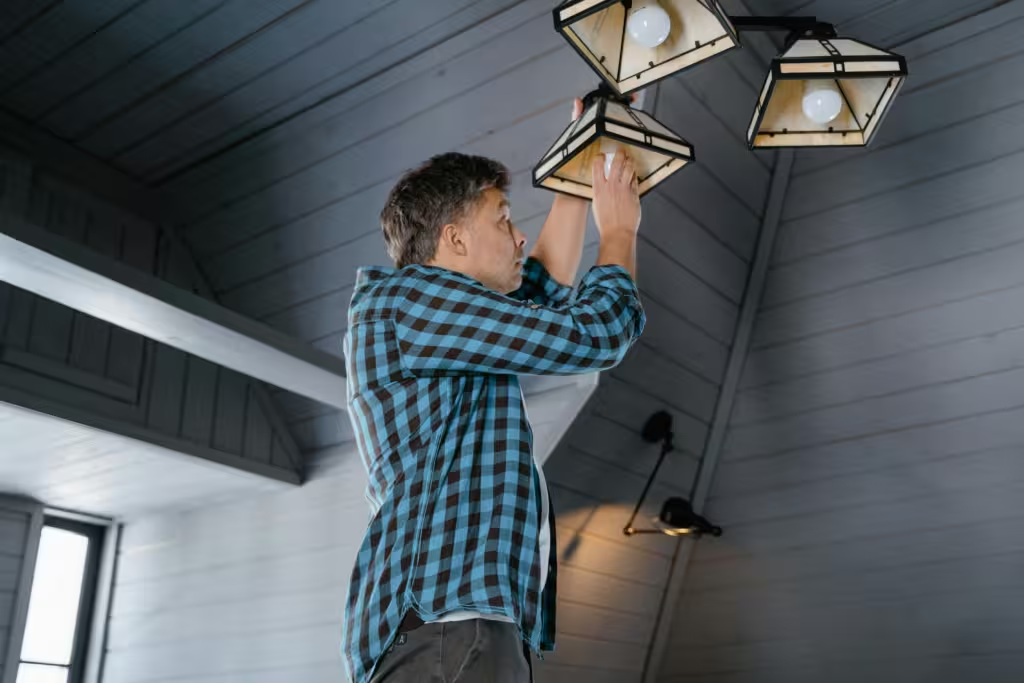What Are the 10 Most Common Electrical Problems in the Typical Home?
Electrical issues in the home are not just inconvenient—they can also pose safety risks if left unattended. Whether you live in an older home or a modern one, certain electrical problems are common and should be addressed promptly. In this blog post, we will discuss the 10 most common electrical issues that homeowners face, their causes, and why it’s important to have them fixed by a licensed electrician.
1. Flickering or Dimming Lights
Flickering or dimming lights can be a sign of a larger electrical problem. This can be caused by loose wiring, overloaded circuits, or faulty fixtures. While it might seem like a minor issue, flickering lights could signal a risk of electrical fire and should be inspected as soon as possible.
2. Circuit Breakers Tripping Frequently
If your circuit breakers trip frequently, this indicates that your electrical system is overloaded. This may happen if you’re running multiple high-wattage appliances at once, such as a microwave, refrigerator, or air conditioner. Frequent tripping could also point to a short circuit or ground fault that needs immediate attention.
3. Outlets That Don’t Work
Non-functional outlets are a common household problem. Sometimes, they may be the result of loose wiring, but in other cases, the circuit breaker may have tripped. A licensed electrician should check to ensure that the issue is not more serious, such as a faulty connection.
4. Hot or Sparking Outlets
If you notice that an outlet feels hot to the touch or is sparking, this is a dangerous situation that should be addressed immediately. Heat and sparks can be signs of faulty wiring, an overloaded circuit, or a short circuit, all of which pose a serious fire hazard.
5. Frequent Light Bulb Burnouts
Do your light bulbs burn out more often than they should? This could be due to several factors, including high wattage, poor wiring in the circuit, or insulation that’s too close to the light. It’s important to use the correct bulbs and have an electrician check the wiring.
6. Electrical Shocks When Plugging in Devices
Experiencing an electric shock when plugging in or unplugging a device is not only startling but also a clear sign that something is wrong. This could be due to poor wiring or faulty appliances. It’s important to stop using the outlet and contact an electrician to assess the issue.
7. Burning Smell or Discolored Switches/Outlets
A burning smell or discoloration around an outlet or switch is a sign of overheating. This could be caused by faulty wiring or overloaded circuits, both of which can lead to electrical fires. If you smell burning or see discoloration, turn off the power and contact a professional right away.
8. Overloaded Circuits
An overloaded circuit happens when too many devices or appliances are drawing power from the same circuit. This is particularly common in older homes where the electrical system wasn’t designed to handle modern loads. Overloading can lead to frequent tripped breakers and potentially a fire hazard.
9. Old or Faulty Wiring
Homes with old wiring are more prone to electrical problems such as short circuits, electrical surges, and even fires. Over time, wiring can degrade, especially in homes built before the 1980s. If you have an older home, it’s crucial to have the wiring inspected regularly.
10. Frequent Electrical Surges
Electrical surges can be caused by lightning strikes, damaged power lines, or faulty appliances. While most surges last only a fraction of a second, they can cause significant damage to electronic devices and appliances over time. If you experience frequent surges, it’s essential to have your home’s electrical system checked.
Conclusion
Electrical problems in the home should never be ignored. Whether it’s a minor issue like flickering lights or a serious one like a burning smell, addressing these problems promptly can prevent more significant risks such as electrical fires or damaged appliances. Always hire a licensed electrician to diagnose and repair electrical issues to ensure the safety of your home and family.
If you’re experiencing any of these common electrical problems, don’t hesitate to contact Point B Electrical Services for a professional inspection and repair.
*Go back to Point B Electrical Services home page…
*Discover the latest updates, promotions, and expert electrical tips by visiting Point B Electrical Services Facebook page today!


